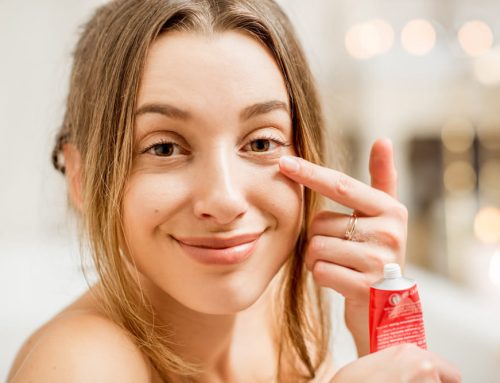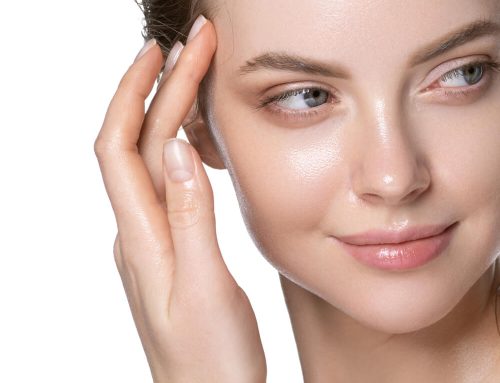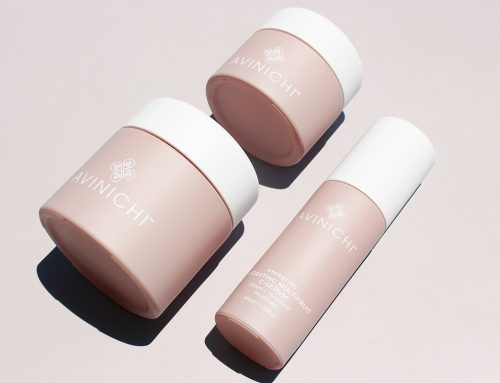If you’ve ever wondered whether toning is a necessary step in your skincare routine, you’re not alone. The beauty world is full of conflicting advice, and toning is one of those steps that can leave you scratching your head. Some people swear by it, while others skip it altogether. So, what’s the truth? Are you wasting your time, or is toning a step you can’t afford to miss? Let’s break it down.
What Is a Toner?
Let’s start with the basics. A toner is a liquid product that’s typically applied after cleansing and before moisturizing. The purpose? To “tone” your skin, which, in the past, was believed to help balance your skin’s pH after the cleansing process. Some toners claim to tighten pores, remove leftover makeup or dirt, and prep your skin for the rest of your skincare routine.
In short, toners were once marketed as essential for achieving clear and smooth skin. But are they really all they’re cracked up to be?
Why Do People Use Toners?

People use toners for different reasons, depending on their skin type and concerns. Traditionally, toners were used to address oily or acne-prone skin by removing excess oils and refining pores. Over time, the formulas have evolved, and now there are hydrating toners, soothing toners, and even exfoliating toners. So, while they may have been a one-size-fits-all product in the past, there’s now a variety of toners tailored to different skin needs.
The idea behind toning is that it helps to refresh the skin and restore balance after cleansing. Some toners are formulated with ingredients like witch hazel or alcohol to tighten pores, while others contain calming ingredients like aloe vera or rose water to hydrate and soothe. In theory, toners can also help prep your skin to absorb serums and moisturizers more effectively.
Do You Really Need a Toner?
Here’s the burning question: Do you really need a toner in your skincare routine? The answer isn’t as simple as yes or no. It really depends on your skin type and what you’re hoping to achieve.
If You Have Oily Skin
If you have oily or acne-prone skin, toners can be helpful, especially if they contain ingredients like witch hazel or salicylic acid. These toners can help control excess oil, reduce shine, and target breakouts. They can also give you a refreshed feeling after cleansing. However, it’s important to choose a toner that’s gentle and won’t strip your skin of its natural oils, as over-drying your skin can lead to more oil production.
If You Have Dry Skin
For those with dry or sensitive skin, toners can sometimes be more trouble than they’re worth. Many toners designed for oily skin contain alcohol or astringents, which can strip the skin’s moisture and leave it feeling tight or irritated. If you have dry skin, it’s best to look for hydrating toners with ingredients like glycerin or hyaluronic acid. But honestly, if your cleanser is gentle and moisturizing, you might not need an extra toner at all.
If You Have Normal Skin
For normal skin types, toning is more of a personal preference. If you love the feeling of a refreshing toner, then go ahead and use one. But if you’re happy with your routine and not seeing any negative effects from skipping the toner, there’s no need to force it into your regimen. Normal skin doesn’t typically need the extra help that toners provide, but it won’t hurt to use one if you feel like it adds something to your routine.
What Are the Benefits of Toning?

Toners do have some benefits, but they’re not always as essential as the beauty industry has led us to believe.
Tightening and Smoothing Skin
Some toners can temporarily tighten the skin, giving it a smoother appearance. If you’re looking to reduce the appearance of pores, toners with ingredients like witch hazel can give your skin a more refined look. However, keep in mind that toners can’t physically shrink your pores—they can only tighten the skin around them for a short period.
Hydrating and Refreshing
If your toner is hydrating, it can give your skin an extra boost of moisture, making it feel soft and refreshed. This is especially helpful after cleansing, which can sometimes leave the skin feeling dry. Hydrating toners with ingredients like aloe vera or rose water are perfect for soothing and cooling the skin.
Helping Other Products Absorb
Some people find that toners help their skin absorb the products they apply afterward. This is especially true for toners that contain exfoliating ingredients, which can remove dead skin cells and help your other products penetrate deeper into your skin. While it’s not a miracle solution, a good toner can potentially enhance the effectiveness of your serums and moisturizers.
The Downsides of Toning
While toners do offer some benefits, there are also a few downsides to consider.
It Can Be Redundant
For many people, toning is just an extra step that doesn’t add much to their routine. If your cleanser is already gentle and your moisturizer does a great job of hydrating your skin, a toner may feel unnecessary. In fact, you could be spending time and money on a product that doesn’t do much for you.
Potential for Irritation
Some toners, especially those with alcohol or astringents, can irritate the skin. If you have sensitive skin or are prone to dryness, toning can leave your skin feeling tight, dry, or even red. Always check the ingredients list to ensure your toner is suitable for your skin type.
Extra Time and Effort
Toners add an extra step to your routine, and if they don’t make a significant difference in your skin’s appearance, it might feel like a waste of time. If you’re looking to simplify your skincare, skipping the toner might be the way to go.
Should You Keep Using a Toner?
Ultimately, it comes down to your skin’s needs and your personal preference. If you love using a toner and feel like it benefits your skin, then go ahead and keep it in your routine. If you have oily skin or acne, it may be worth trying a toner to help control oil and breakouts. But if you have dry or sensitive skin, you might find that skipping the toner and focusing on hydration is a better option.
Remember, skincare isn’t one-size-fits-all. It’s about what works for you. If you’re happy with the results from your current routine—whether you use a toner or not—there’s no need to add another step just because it’s trendy.
Conclusion
The truth about toning is that it’s not an essential step for everyone. While toners can offer benefits like tightening skin, refining pores, and providing hydration, they’re not necessary for glowing, healthy skin. If toning works for you and enhances your skincare routine, great! But if you’re looking to streamline your routine, feel free to skip it and focus on the steps that make the most difference for your skin.
At the end of the day, skincare is about finding what works best for you. Keep it simple, enjoy the process, and don’t feel pressured to follow every trend in the beauty world.






Leave A Comment